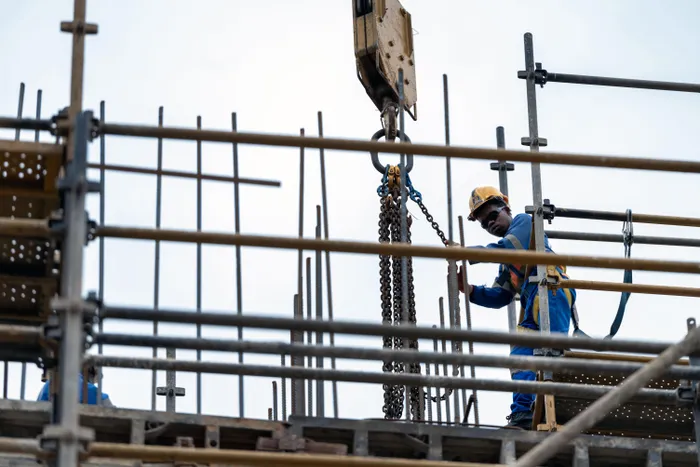
Construction markets in Zimbabwe and South Africa are on a growth trajectory, with PPC poised to capitalise on emerging opportunities despite challenges in liquidity and project execution
Image: Leon Sadiki/Bloomberg
Tawanda Karombo
Construction markets in Zimbabwe and South Africa are expected to continue on a growth trajectory, providing a strong background for companies such as PPC that are ramping up competitiveness to stand better prospects against imports.
Data from researchers on Tuesday showed that the South African cement market reached approximately 13.78 million metric tons in 2024 and “is expected to grow steadily” over the coming 10 years, with an annual growth rate of 2.50% projected from 2025 to 2034.
Zimbabwe has also seen a booming construction sector with government projects and the retail sector, as well as residential housing sector providing impetus. This was benefiting construction industry companies such as cement and brick manufacturers among others.
Matias Cardarelli, the CEO of PPC, said the company was cautiously optimistic of the infrastructure plans under South Africa’s government of national unity (GNU). He explained that the construction sector was a major driver of the economy through job creation and other activities.
“We believe that the administration is aware of that and that makes us optimistic we are going to see that (construction and infrastructure growth) happening in the short term,” said Cardarelli.
Regarding Zimbabwe, where PPC is progressing with a solar power plant, Cardarelli said the construction market was growing on a yearly basis.
Construction companies in Zimbabwe are maintaining a stronger order book although they have to cherry-pick contracts in order to manage credit risks due to a liquidity crunch, especially in the public sector.
For example, Masimba Holdings, formerly Murray and Roberts Zimbabwe, recently said its “contracting order book remained robust, particularly in the roads” sector.
“However, a lack of liquidity within the market hampered effective execution, leading to cash flow challenges and an increasing debtors’ book. This constrained the business’ ability to fund ongoing projects and manage operational expenses, causing delays in project execution,” said the company.
PPC has been flying high in Zimbabwe over the past few years, raking in the dividends. According to Cardarelli, the Zimbabwe construction market has continued to notch up steady growth.
“So in Zimbabwe, what we are seeing is also a market that is steadily growing year after year and we are not expecting to see any change to that,” he told Business Report.
PPC has just recorded an improvement of 6% in Earnings Before Interest, Taxes, Depreciation, and Amortization (Ebitda) margins for Zimbabwe. A new solar power plant is being developed in Zimbabwe on an offtake basis to enable PPC to power up its operations in the midst of rolling power outages that are disrupting productivity.
Headline earnings per share in PPC for the year to end March 2025 grew from 19 cents a year ago to 40 cents. This was despite a decrease of 1.9% in revenues to R9.871 billion for the same period.
Ebitda surged 28% to R1.593bn with operational free cash flow increasing to R1bn, helping the company to grow ordinary dividends for the period to 17.6 cents compared to 13.7 cents per share in the previous comparative period.
Cardarelli said PPC has had to focus on internal corrections to grow its earnings and unlock under utilised value for the company. He explained that the company had performed ahead of what it was expecting for the period under review.
BUSINESS REPORT